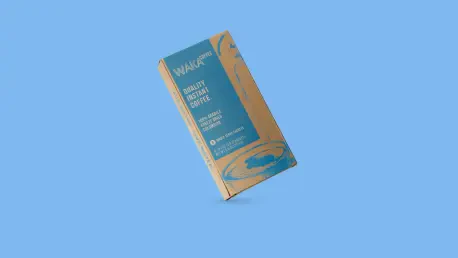Arden Software has launched groundbreaking AI-powered features in their renowned packaging design platform, Impact, which were recently showcased at the Hybrid Fusion Packaging Summit in Amsterdam. As a pioneer in CAD/CAM structural design software, Arden’s Impact has become a crucial tool for packaging designers, die-makers, and converters worldwide. The latest innovation, the ‘Shape Similarity’ suite, promises to completely transform how workflows are managed in packaging and tooling design. The newly introduced ‘Design Similarity’ feature allows users to effortlessly identify design matches within their databases. This significantly optimizes time and reduces costs by allowing for the efficient reuse of existing designs. The feature employs an advanced machine learning model capable of conducting rapid searches across large databases while factoring in design profiles, as well as scale and proportion differences. These searches are customizable based on parameters such as customer preferences, material, or creation date, offering unmatched precision and adaptability.
Transformative Capabilities in Packaging Design
Matt Hewitt, Arden Software’s Technical Director, expressed his enthusiasm for the strong demand for AI-powered tools in the industry. These tools are seen as transformative, particularly in functions like quoting and tooling checks. The integration of the Design Similarity feature signals Arden’s ongoing focus on fostering innovation, building on the momentum of their previous introduction of Dynamic Constraints. This earlier breakthrough set a new benchmark in packaging CAD software by enabling advanced design constraints that enhance flexibility and precision. Arden’s participation as a primary sponsor at the Hybrid Fusion event further underscored its dedication to improving efficiency in the packaging supply chain through digital transformation initiatives. The summit, organized in collaboration with Hybrid Software, concentrated on enhancing workflow efficiency, featuring sessions led by industry experts and interactive learning opportunities. This exclusive event brought to light not only Arden’s innovations but also the evolving landscape of packaging design, emphasizing the need for increasingly automated and optimized processes.
Envisioning a Future of Greater Automation
Looking ahead, Arden Software has plans to extend its AI capabilities beyond current offerings by incorporating additional processes like Waste Area matching to further bolster automation and optimization for die-makers. This step is in line with industry trends that demand greater automation and digital integration to stay competitive. Such advancements underscore Arden’s commitment to developing more intelligent and efficient design environments, which are likely to redefine the standards in packaging design. The company’s strategic focus on technological innovation aligns with the industry’s broader move towards automation, efficiency, and enhanced digital integration. By continually refining and expanding its AI capabilities, Arden remains at the forefront of a rapidly evolving industry, setting the pace for future developments. The impact of these advancements is expected to resonate beyond individual companies, influencing industrywide practices and contributing to the broader dialogue on digital transformation in packaging and design sectors.
The Road Ahead in AI-Powered Design
Arden Software has unveiled innovative AI-driven features in its respected packaging design software, Impact, showcased at the Hybrid Fusion Packaging Summit in Amsterdam. As a leader in CAD/CAM structural design tools, Arden’s Impact software is indispensable for packaging designers, die-makers, and converters globally. Their latest breakthrough, the ‘Shape Similarity’ suite, is poised to revolutionize workflow management in packaging and tooling design. The freshly added ‘Design Similarity’ feature enables users to efficiently locate matching designs within their databases, vastly improving time efficiency and cutting costs by facilitating the reuse of existing designs. Utilizing an advanced machine learning model, this feature swiftly searches extensive databases while considering design profiles along with differences in scale and proportion. Moreover, users can tailor these searches based on parameters like customer preferences, material, or creation date, ensuring remarkable precision and flexibility, ultimately streamlining the design process.









